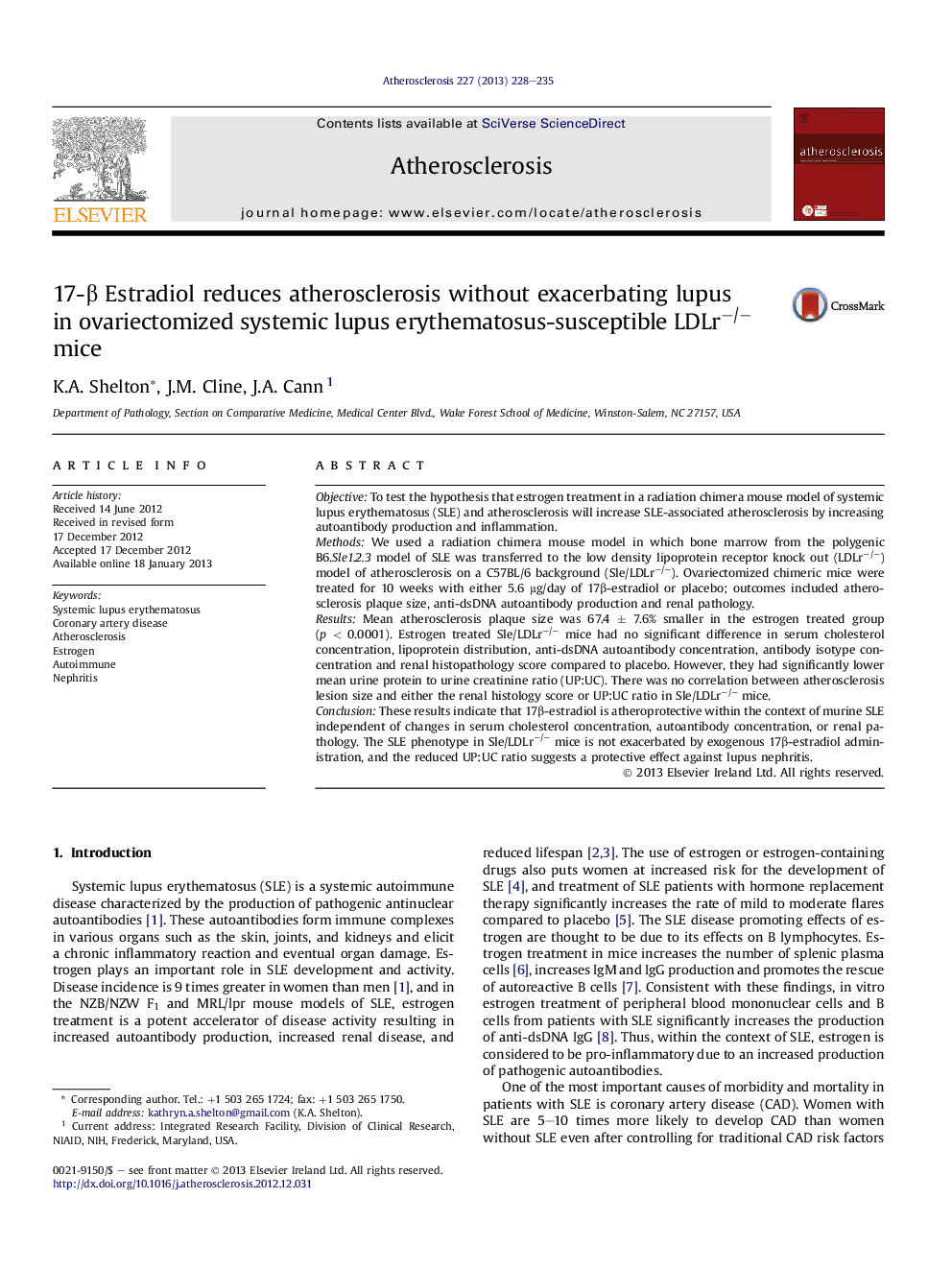| Article ID | Journal | Published Year | Pages | File Type |
|---|---|---|---|---|
| 5947730 | Atherosclerosis | 2013 | 8 Pages |
ObjectiveTo test the hypothesis that estrogen treatment in a radiation chimera mouse model of systemic lupus erythematosus (SLE) and atherosclerosis will increase SLE-associated atherosclerosis by increasing autoantibody production and inflammation.MethodsWe used a radiation chimera mouse model in which bone marrow from the polygenic B6.Sle1.2.3 model of SLE was transferred to the low density lipoprotein receptor knock out (LDLrâ/â) model of atherosclerosis on a C57BL/6 background (Sle/LDLrâ/â). Ovariectomized chimeric mice were treated for 10 weeks with either 5.6 μg/day of 17β-estradiol or placebo; outcomes included atherosclerosis plaque size, anti-dsDNA autoantibody production and renal pathology.ResultsMean atherosclerosis plaque size was 67.4 ± 7.6% smaller in the estrogen treated group (p < 0.0001). Estrogen treated Sle/LDLrâ/â mice had no significant difference in serum cholesterol concentration, lipoprotein distribution, anti-dsDNA autoantibody concentration, antibody isotype concentration and renal histopathology score compared to placebo. However, they had significantly lower mean urine protein to urine creatinine ratio (UP:UC). There was no correlation between atherosclerosis lesion size and either the renal histology score or UP:UC ratio in Sle/LDLrâ/â mice.ConclusionThese results indicate that 17β-estradiol is atheroprotective within the context of murine SLE independent of changes in serum cholesterol concentration, autoantibody concentration, or renal pathology. The SLE phenotype in Sle/LDLrâ/â mice is not exacerbated by exogenous 17β-estradiol administration, and the reduced UP:UC ratio suggests a protective effect against lupus nephritis.
⺠We report of the effects of estrogen on a mouse model of lupus and atherosclerosis. ⺠Estrogen treatment was atheroprotective compared to placebo. ⺠Estrogen also protected the lupus-prone mice from protein losing nephropathy. ⺠Estrogen did not increase auto-antibody production compared to placebo.
